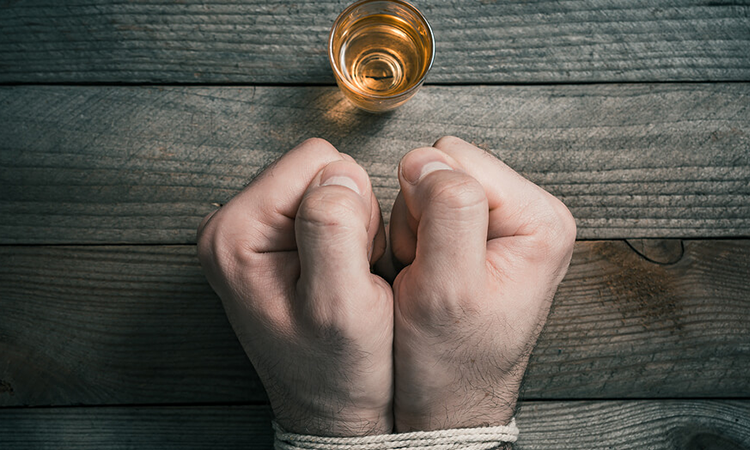
How to Stop Drinking for Good – For millions of Americans, alcohol abuse is one of the hardest habits to quit. Alcohol is not only legal and readily available, it is widely accepted as part of our culture. And yet, there is a still a stigma associated with alcoholism, one that often prevents those who need treatment from seeking it.
Acknowledging that alcohol abuse is a problem and making a plan to do something about it is the first critical step toward becoming free of addiction and creating a new life for yourself.
How to Stop Drinking: Rules for Recovery
Recovery from alcohol addiction is best achieved through a clear, principled approach. Recovery is much more than just a one-time decision to kick the habit—it is a long-term commitment that requires constant course correction to prevent relapse. Without an understanding of some of the components necessary for a successful recovery, we jump in blind.
The Yale Journal of Biology and Medicine lists five rules to follow for a successful, permanent recovery:
1. Change Your Lifestyle
Kicking a drinking habit is more than just not drinking. The most significant stumbling block for an alcoholic is a deep-rooted, nagging feeling that there is no real overriding reason to quit. The fact that you are an alcoholic means that your beliefs, values, and intentions must have been conducive to substance abuse.
It is a tough pill to swallow. Nonetheless, you must recognize that alcoholism is a way of life, not just a single habit you have on the side. To decisively stop drinking once and for all, you must entirely change your life and replace every activity linked to drinking with a new activity that fills your life with purpose. You must explore and find your ultimate reason to stay sober by becoming part of something worthwhile.
2. Always be Completely Honest
Being an alcoholic usually means having to compartmentalize your incongruent lifestyles. Though it is impossible in the long run, alcoholics tend to lie or tell half-truths to conceal the ugliness of their problem from those who are close to them. Tragically, this pattern of behavior almost always breeds for the drinker a toxic, self-directed shame, which further motivates the wish to escape through alcohol.
During recovery, honesty is always the best policy, whether at a support group, with close friends and family, or, most importantly, with yourself.
3. Ask for Help
A drinking problem can be embarrassing. After all, to reach out to others means openly admitting to them and ourselves that we might be too weak to quit on our own. For this reason, we often try repeatedly to quit in secret – desperate to protect our egos – and we relapse almost every time.
Consistently, research proves that the chances for lasting recovery are dramatically increased if we reach out for help. Self-help groups, detox, and substance abuse programs are proven to be critical tools in the sustainment of long-term sobriety.
4. Practice Self-Care
Recovery is not about your loved ones or about serving society’s best interests – it’s about you. Alcohol is often a crutch we use when we get exhausted after too little sleep, constant stress from being saddled with responsibilities, or self-medication for neglecting our physical and mental well-being. Because of this, recovery means that you must take time to care about yourself, for yourself.
Self-care is not mere selfishness. Selfishness is about sacrificing the needs of others to satisfy your wants. Self-care is about giving yourself what you need—it is about having enough. Curiously, practicing self-care also means that your loved ones are no longer obligated to sacrifice their needs to provide you with yours. Relapse is best avoided when you give yourself the sobriety and wellness you genuinely deserve.
5. Don’t Bend the Rules
The final rule is here to safeguard yourself from corruption. You may get to a point in recovery where the first four rules seem like overkill or altogether unnecessary. It is in these precious moments, however, before true, long-lasting recovery is achieved, that you must bear down and bolster your resolve.
If at some point, you feel as if these rules are no longer necessary, you may be closer to relapse than you realize. These aren’t just rules for addiction recovery, but principles for a healthy life in general. If you are going to get sober, you must do it all the way.
How to Stop Drinking: The Recovery Process

Professional addiction treatment is a process that may last for several months – and with good reason. There is no instant cure for addiction – instead, it requires the patient to unlearn certain behavior and re-learn new coping skills.
Recovery from substance abuse typically beings with a medically-assisted detox program, progresses into inpatient and eventually outpatient treatment, and makes use of aftercare planning to ensure the patient continues to receive the necessary medical\emotional support needed for the maintenance of long-term sobriety.
Detox
The first step in a professional recovery program is almost always detox. A medical detox is a process in which the patient is monitored by physicians and addiction experts while his or her system cleanses itself of alcohol and other toxins. During this time, medication is administered to treat withdrawal symptoms and prevent complications.
Note: Because alcohol withdrawal can be fatal in extreme cases, detox is a critical part of a recovery program and may take several days to safely complete.
Intensive Treatment
While detox solves the problem of withdrawal, it does not help the patient learning how to create a new life without drugs or alcohol – this is where long-term medical support and therapy become indispensable. After detox, many patients opt for a residential (inpatient) treatment program. During this part of treatment, the patient resides at the center for at least 30 days while receiving therapeutic services that teach coping skills and foster confidence – critical tools needed to prevent relapse.
Outpatient programs are another option for new patients, particularly those who require more flexibility to attend to personal responsibilities such as work, family, and school. Outpatients live in a private resident or transitional sober living environment and visit the center several times per week for therapy and support.
Also, many inpatients choose outpatient treatment after discharge to continue the recovery process while they re-acclimate to the outside world.
Aftercare
Our center offers aftercare planning services for patients nearing discharge. This service helps connect patients to resources such as psychiatric and counseling services after they have completed intensive treatment. Former patients are also encouraged to participate in 12-step meetings or other support groups and can enjoy alumni activities which foster ongoing peer support.
How to Stop Drinking: Other Long-term Recovery Techniques
Recovery doesn’t end after rehab and intensive treatment – it’s a lifelong process that continues in stages. The following are tips to help maintain long-lasting sobriety and well-being.
1. Eliminate temptations and triggers in your the immediate environment. These include any type of alcohol or alcohol paraphernalia, such as wine bottles or references to addictive substances.
2. Be vocal and lean on family and friends for support. You can expect the people who genuinely care about you and your sobriety to join your fight and support your endeavors.
3. Avoid environments that may be conducive to relapse. You might not be able to avoid bars and parties forever, but during the early stages of sobriety, many in recovery find it difficult to be around alcohol and other people who are drinking – and that’s okay. Don’t underestimate your capacity for relapse and be safe rather than sorry.
4. Write in a journal. It may be helpful to write down your thoughts and feelings during recovery and reflect on them later to gain more insight into the motivations driving your addictive behaviors.
5. Exercise and eat healthy. Living a well-balanced is one of the keys to lasting recovery. Take on a new exercise regime if you haven’t one already. It’s okay to challenge yourself and equally okay to just get started on something, such as long walks. Avoid simple sugars/carbohydrates and processed foods, and instead, opt for whole grains and foods high in protein.
6. Remember why you’re there and how you got there. Develop a holistic wellness plan for yourself, stick to it and don’t cut corners. Living your best, healthiest life is critical to sustaining sobriety and regaining the happiness and fulfillment you desire.